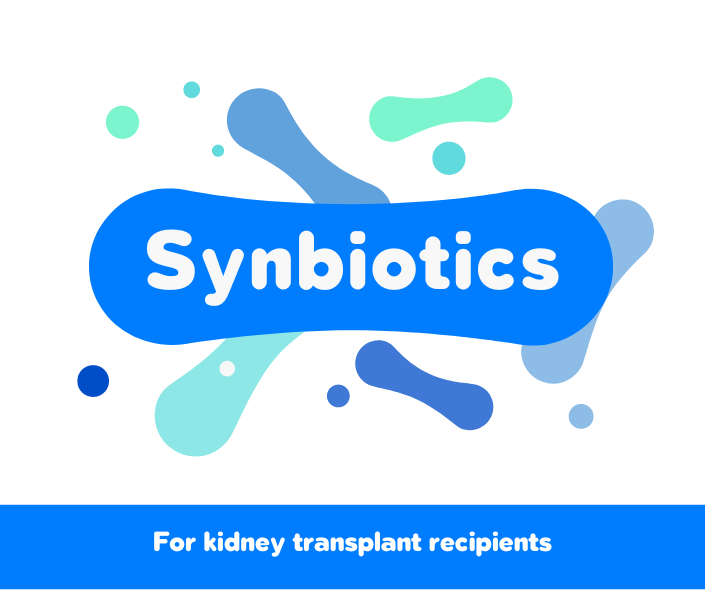There is growing interest in how the gut microbiome might modulate disease outcomes for those living with chronic kidney disease. Of particular interest in CKD, is how to reduce the risk of MACE (major adverse coronary events), which is higher than the general population. Interestingly, the risk of CVD (cardiovascular disease) or MACE remains higher even after kidney transplant.
So today’s article is a pilot study which investigated the use of synbiotics on early markers of heart disease in kidney transplant recipients.
What markers of CVD were studied?
The study identifies p-Cresol, a uremic toxin, as the main marker of CVD. p-Cresol is a known toxin to endothelial cells. Levels of p-Cresol are elevated in those with kidney disease due to:
- Reduced renal clearance
- Increased synthesis in the intestines from anaerobic bacteria oxidation of phenylalanine and tyrosine
More traditional markers of cardiovascular disease, including a lipid profile were also studied.
What did they do?
This was a 2 synbiotics to 1 placebo randomized, double bind trial. 24 participants received the synbiotic supplement. Twelve participants took a placebo for 30 days. Researchers measured p-Cresol levels in their blood on days 15 and 30 while they were taking the supplement. A final measurement of p-Cresol was taken 30 days after stopping the supplement.
The researchers assessed gastrointestinal symptoms and measured cholesterol profiles, glucose, albumin, and eGFR at baseline and after 30 days.
What synbiotic supplement did they use?
Participants took the supplement as a 5g powder, dissolved in water, three times daily, away from meals. The product contained:
- Lactobacillus plantarum
- Lactobacillus casei subspecies rhamnosus
- Lactobacillus gasseri
- Bifidobacterium infantis
- Bifidobacterium longum
- Lactobacillus acidophilus
- Lactobacillus salivarius
- Lactobacillus sporogenes
- Streptococcus thermophilus
- Prebiotic Inulin
- Tapioca-resistant starch
What did they find?
After 30 days, renal function, lipid profile, albumin and glucose were stable in both groups. Levels of p-Cresol were lower than baseline at 15 and 30 days in the synbiotic group. Particpants reported good tolerance to the supplement, with no reported increase in gastrointestinal symptoms.
What this study tells us?
Short courses of synbiotic supplements appear to be safe and well tolerated among those who have received a kidney transplant. Those who were taking a synbiotic had lower levels of p-Cresol at both 15 and 30 days.
What this study doesn’t tell us?
It is important to note that this study did not test hard outcomes (e.g. they didn’t see if taking this supplement actually reduced the number of MACE). Studies of longer duration would be required to confirm if taking synbiotics were associated with lower MACE.
Take Aways
This study provides some information for kidney transplant recipients considering synbiotics. Specifically, this study indicates that short-term synbiotic use appears to be well-tolerated with no impact on graft function. However, longer-term studies are necessary to determine the long-term effects on graft function and to better evaluate potential benefits for outcomes like CVD.



